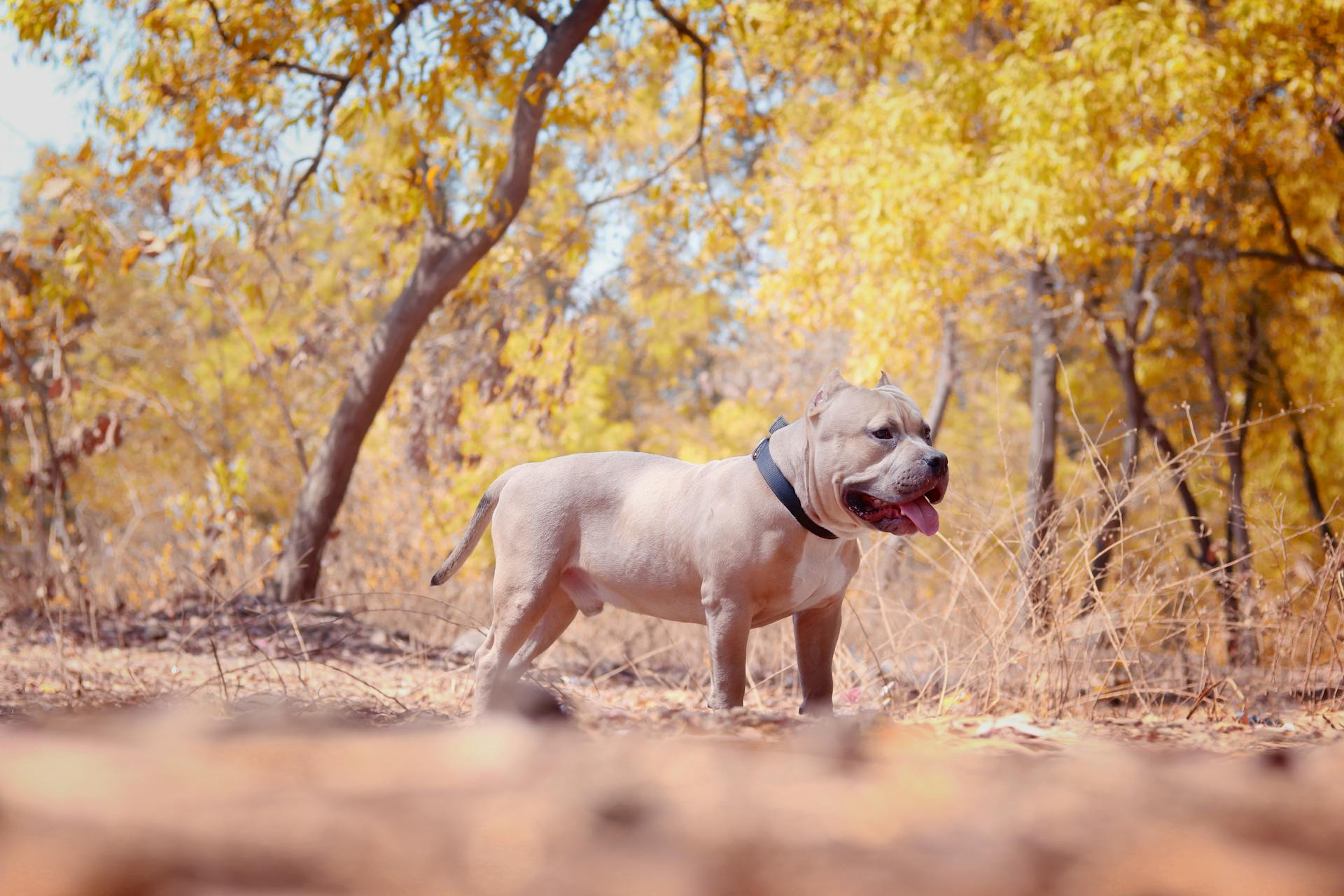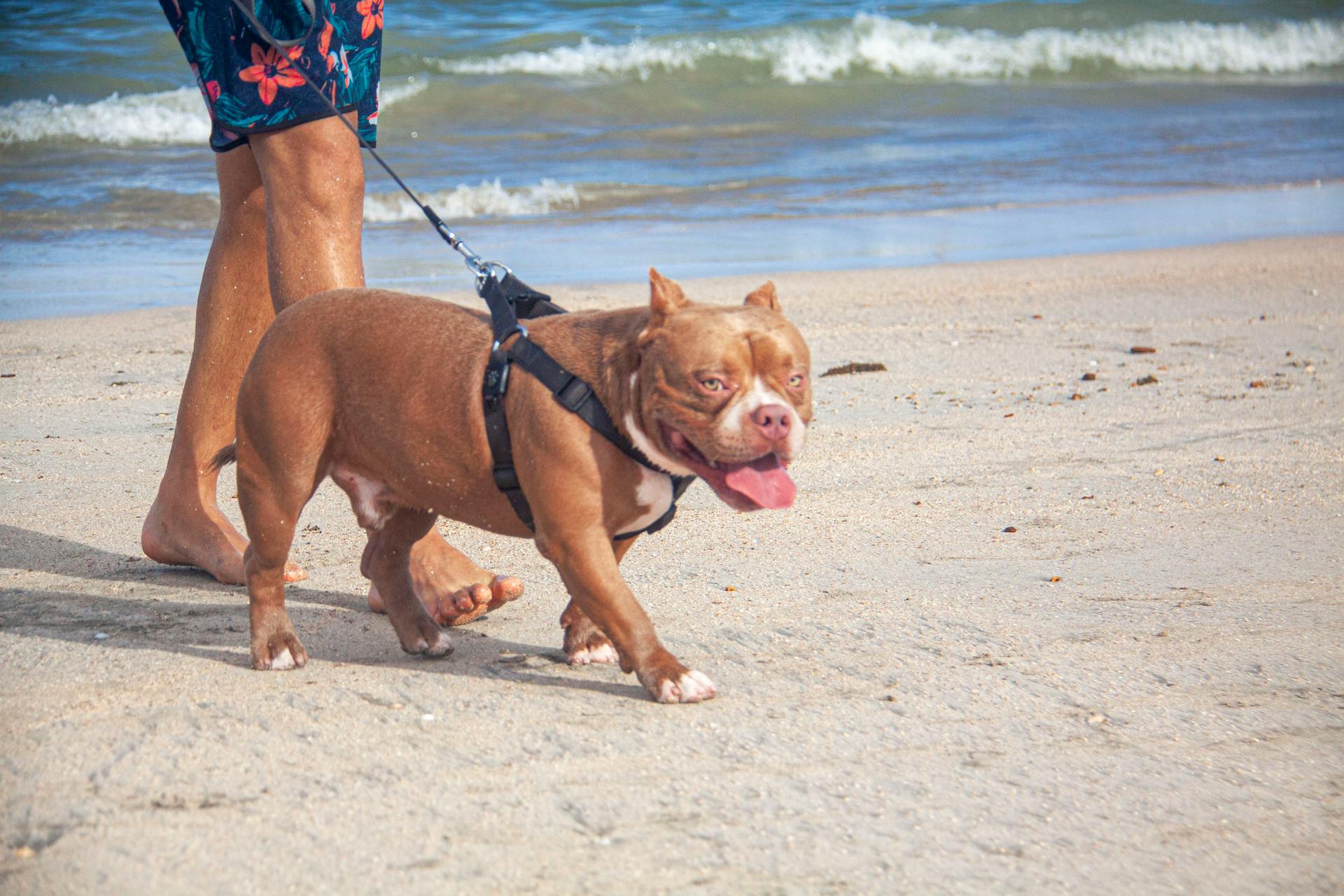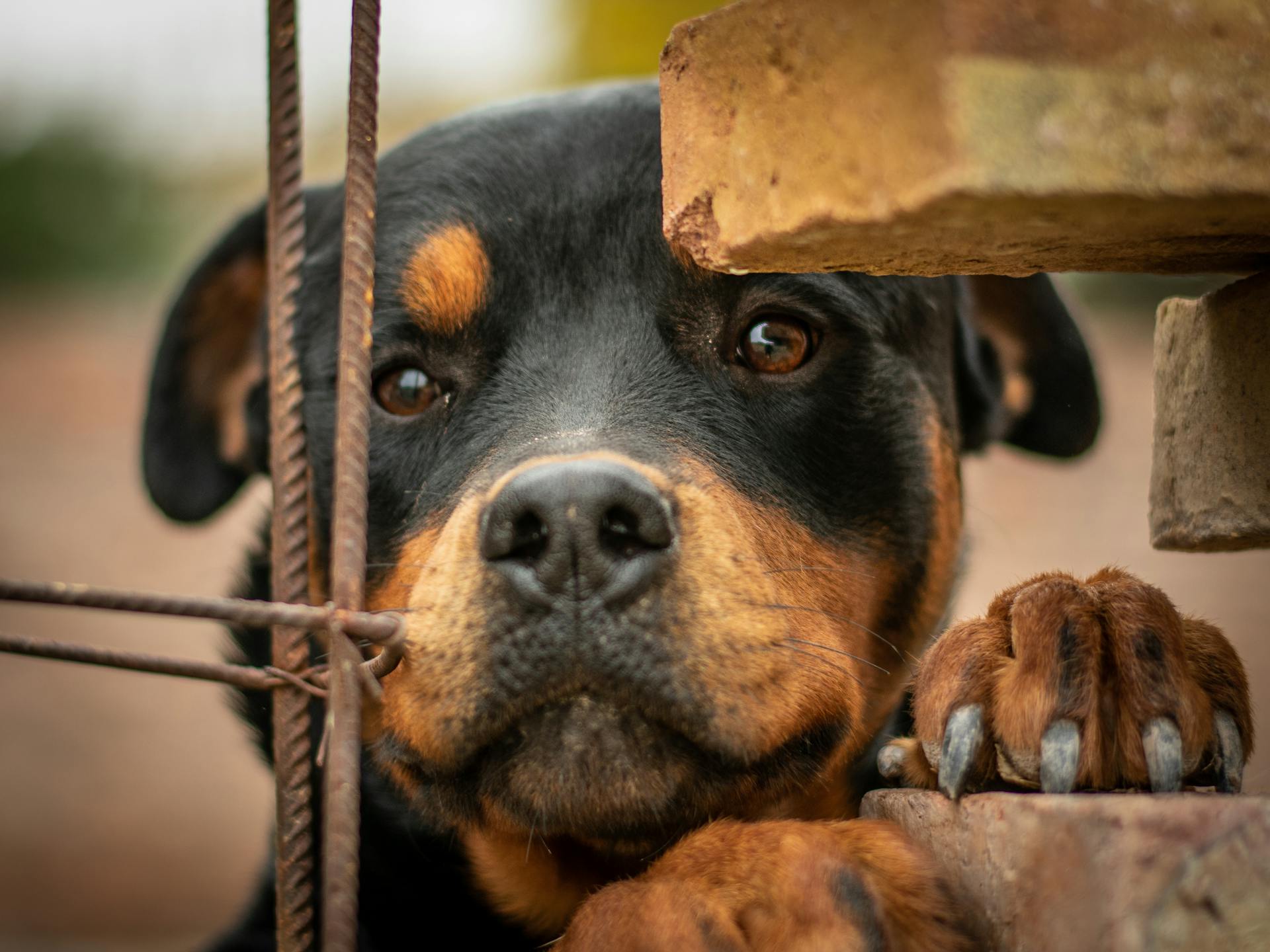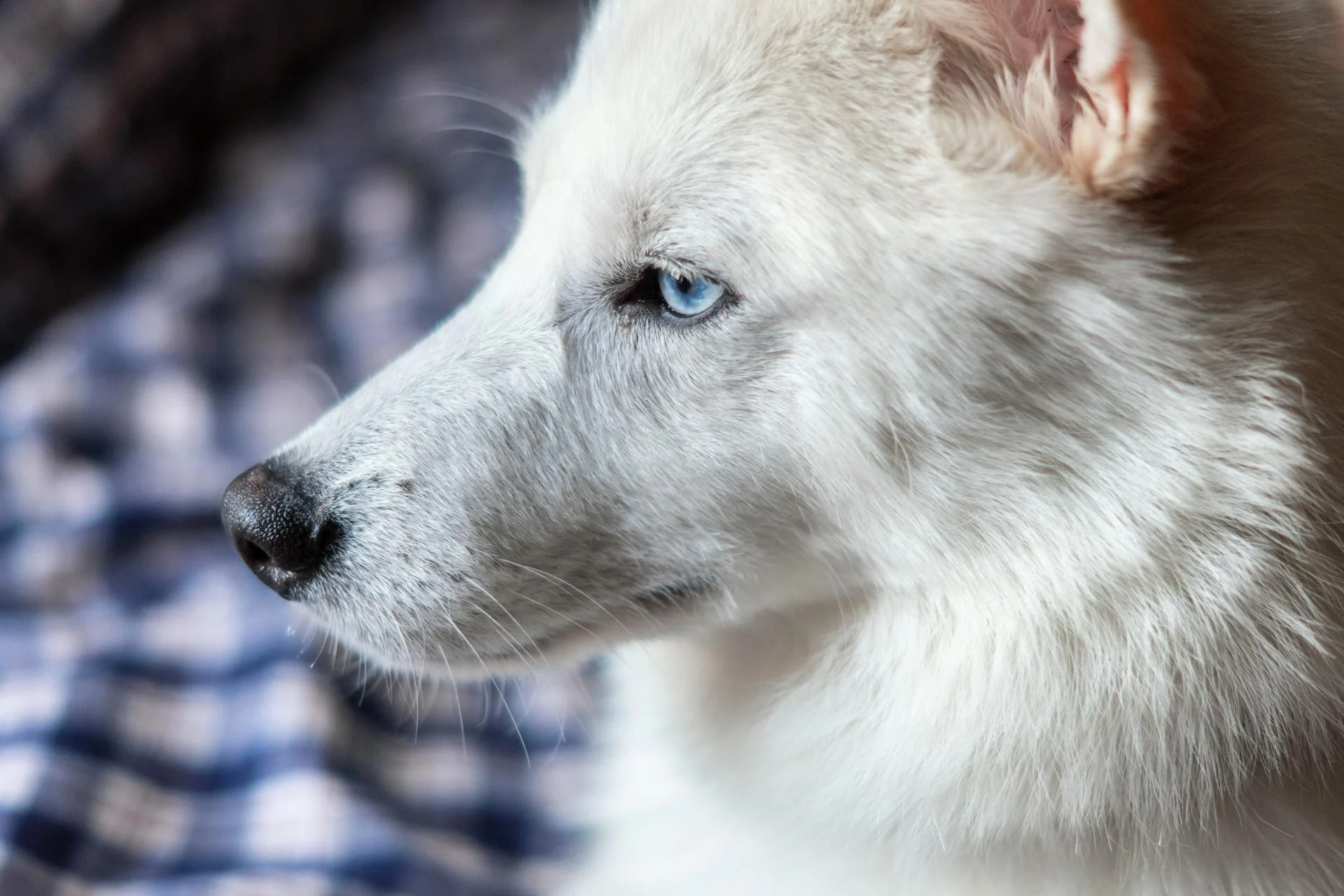
The American Bully and American Bulldog are two popular breeds that often get confused with each other due to their similar names and physical characteristics.
The American Bully was developed in the 1990s as a companion dog, weighing between 70-120 pounds. They have a muscular build and a short, easy-to-maintain coat.
One of the key differences between the two breeds is their historical background. The American Bulldog has a long history dating back to the 18th century, while the American Bully is a relatively new breed.
The American Bulldog was bred to be a working dog, exceling in tasks such as guarding and herding, whereas the American Bully is bred for companionship and athleticism.
Suggestion: Game Bred American Pit Bull Terrier
Parent Breeds and Origins
The American Bully and American Bulldog have unique parent breeds that shape their characteristics.
The American Bully is a cross between the American Pitbull Terrier, Staffordshire Bull Terrier, and other breeds like the Bulldog, Mastiff, and American Bulldog.
Developed in the 1990s, the American Bully was created to be a companion dog with a friendly and loyal disposition.
This breed is known for its muscular build, broad head, and short, glossy coat.
The American Bulldog, on the other hand, has a more extended history, dating back to the 18th century.
It comes from English Bulldogs used for bull-baiting, but were later selectively bred for farm work.
The American Bulldog is a large and powerful breed with a muscular build and a short, smooth coat.
They are known for their strength and athleticism and excel in activities like weight pulling and agility.
The American Bully and American Bulldog have distinct temperaments, with the American Bully being affectionate, loyal, and eager to please.
The American Bulldog, however, is known for being confident, assertive, and independent.
Both breeds can be prone to specific health issues, such as hip dysplasia, allergies, and skin irritations.
The American Bulldog can also be prone to elbow dysplasia, making joint health a concern for owners of this breed.
The American Bully's ancestry includes breeds like the American Pitbull Terrier, Staffordshire Bull Terrier, and Bulldog.
For more insights, see: Muscular English Bulldog
Physical Characteristics
The American Bully is a broad, stocky dog with a muscular physique and a shorter stature, typically weighing between 70 and 120 pounds.
Their height ranges from 13 to 21 inches, making them a compact and sturdy build perfect for families with children.
One of the key differences between the American Bully and the American Bulldog is their size, with the Bully breed being slightly smaller.
The American Bulldog is a large, imposing dog that can weigh between 60 and 120 pounds and stand between 20 and 28 inches tall at the shoulder.
Their coats are both short and smooth to the touch, with the American Bully coming in various shades of colors and patterns, including black, blue, fawn, and brindle.
Physical Characteristics
The American Bully is a broad, stocky dog with a muscular physique and a shorter stature.
Typically, American Bullies weigh between 70 and 120 pounds.
Their height can vary, but they usually stand between 13 and 21 inches tall at the shoulder.
The American Bully has a compact, sturdy build, making them perfect for families with children.
On the other hand, the American Bulldog is a large, imposing dog that's typically larger and taller than the bully breed.
American Bulldogs can weigh between 60 and 120 pounds and stand between 20 and 28 inches tall at the shoulder.
The American Bully's height typically ranges from 13 to 21 inches, while their weight can vary between 70 and 120 pounds.
It's not just about the numbers, though - the crucial factor is maintaining the correct weight proportion to height.
Both breeds have a boxy head and a muscular body, but the American Bully has a more pronounced musculature and is heavy-boned.
The American Bulldog, on the other hand, has a bulky body with a broad chest, but it's not as muscled as the American Bully.
Coat and Colors
The American Bully's coat is short, glossy, and smooth to the touch and comes in various shades of colors and patterns.
Black, blue, fawn, and brindle are some of the most popular colors for this breed. They may also have white markings on their chest, paws, and face.
Their coat colors can vary among individuals within the breed, making each one unique. Grooming an American Bully primarily depends on their specific coat type.
American Bullies generally have short, smooth coats that are relatively low-maintenance, requiring occasional brushing with a soft bristle brush. This helps remove loose hair and keep their coat healthy and shiny.
Bathing should only be necessary when they get dirty or develop an odor, and a mild dog shampoo should be used to avoid skin dryness.
Curious to learn more? Check out: Long Coat Chesapeake Bay Retriever
Facial Features
The American Bully has a broader head, shorter muzzle, sharper cheekbones, and small, downturned eyes. Their ears are usually cropped or left natural, and they have a friendly expression that makes them perfect for families with children.
The American Bully's head is indeed broader than the American Bulldog's, setting them apart from each other.

The American Bulldog has a wider skull, an undershot jaw, and a more pronounced stop, giving it a distinct look that sets it apart from most dog breeds. The eyes are usually almond-shaped and in various shades of brown.
Their almond-shaped eyes give the American Bulldog a determined expression that makes them perfect for working on farms or as guard dogs.
You might like: English Bulldog Puppies Blue Eyes
Breed Traits
The American Bully is a confident and outgoing breed, known for being friendly toward humans and excellent family pets that thrive on attention and affection.
They are quick learners and are easy to train, making them well-suited for various activities such as obedience, agility, and weight-pulling competitions.
One of the most notable characteristics of the American Bully is its temperament, being affectionate, loyal, and eager to please, with excellent behavior around children.
They are generally healthy, but like all breeds, they can be prone to specific health issues, including hip dysplasia, allergies, and skin irritations.
American Bulldogs, on the other hand, are known for being confident, assertive, and independent, with a loyal and protective nature that makes them excellent guard dogs.
Early socialization and training are essential for this breed to ensure they are well-behaved and obedient companions.
American Bulldogs can be prone to specific health issues, including hip dysplasia, elbow dysplasia, and skin allergies.
Both breeds have a muscular, stocky build and can look somewhat menacing until you get to know them.
They're both of heavy bone structure and bulky, making them often mistaken for pitbull terriers that are banned in some countries and some states in the US.
Health and Care
American Bullies and American Bulldogs are both robust breeds, but they can be prone to certain health issues. Hip dysplasia is a common problem for both breeds, which can lead to arthritis and mobility problems. Elbow dysplasia is another issue that can occur, causing lameness and pain.
Both breeds can also experience skin allergies, which can cause itching, rashes, and discomfort. American Bullies may be more susceptible to skin allergies due to their skin folds and wrinkles. Regular grooming and keeping these areas clean can help prevent skin issues.
Heart disease is another health concern for both breeds. American Bullies may be at risk for heart valve disease, while American Bulldogs can experience cardiac issues, including heart murmurs and valve problems. Regular veterinary check-ups and a healthy diet can help prevent or manage heart disease.
In addition to these health issues, American Bullies and American Bulldogs can also experience eye problems, such as cherry eye, cataracts, and progressive retinal atrophy (PRA). Regular eye exams and a balanced diet can help prevent or manage eye issues.
To keep your American Bully or American Bulldog healthy, it's essential to provide a nutritious diet, regular exercise, and plenty of love and attention. Here are some specific care tips:
- Provide a securely fenced yard for exercise and playtime.
- Keep their coat clean and well-groomed, with occasional bathing and brushing.
- Trim their nails regularly, but avoid over-bathing.
- Clean their ears monthly and look for any redness or parasites.
- Brush their coat between baths to keep it healthy and shiny.
- Schedule regular veterinary check-ups and vaccinations.
- Consider BAER testing for puppies to detect potential hearing issues.
- Feed a large breed puppy food to slow growth and reduce the risk of hip and elbow dysplasia.
By following these care tips and being aware of the potential health issues, you can help your American Bully or American Bulldog live a long and happy life.
Training and Exercise
Consistency is key when training American Bulldogs and American Bullies, and positive reinforcement methods such as praise, treats, and playtime can be very effective.
Daily exercise is crucial for both breeds to prevent boredom and keep them healthy and happy.
To establish yourself as the pack leader, focus on firm, consistent training approaches that focus on positive reinforcement and leadership.
Both breeds respond well to obedience and socialization training, and their natural athletic abilities make them ideal for agility and weight pulling competitions.
Daily exercise is a must for both breeds, and helps them stay physically and mentally fit.
Early obedience training and socialization is a must for both breeds, starting as early as 8 weeks old.
With consistency and patience, training will start to stick, and they'll be able to greet guests, play with children and other dogs, and get along with just about anyone.
Both breeds can have a stubborn streak, but they're quite intelligent and have a deep desire to please you.
A long walk or two shorter walks daily, plus puzzle games indoors to stimulate their minds, should suffice to relieve their energy.
Keeping them from becoming overheated is of the utmost importance due to the possibility of severe symptoms of Brachycephaly.
30 minutes to an hour of daily exercise is normally efficient to expend the American Bully's energy.
American Bulldog puppies should only have a minimal exercise of around 10–20 minutes a day until they are fully grown to avoid health problems.
Bored dogs that are full of extra energy often develop destructive behavior such as excessive barking and aggression.
Ownership and Costs
Let's talk about the costs of owning an American Bully or an American Bulldog. The cost of ownership can vary greatly depending on several factors, but one thing is certain: adopting a dog is often a more affordable option than buying from a breeder.
If you do decide to buy from a breeder, be prepared to pay a hefty sum. American Bully prices can range from $2,000 to $10,000 or more, depending on the breeder's location and the dog's lineage.
For another approach, see: Staffordshire Bull Terrier Breeder
The costs don't stop at the initial purchase price. You'll also need to consider ongoing expenses like food, vet bills, and supplies. American Bulldog owners can expect to pay between $1,500 to $3,500 for their dog, which is still a significant investment.
Here's a quick breakdown of the estimated costs:
- American Bully: $2,000–$10,000+
- American Bulldog: $1,500–$3,500
Frequently Asked Questions
What 4 breeds make an American Bully?
American Bullies are a mix of four breeds: American Staffordshire Terrier, American Pit Bull Terrier, American Bulldog, and Bulldog. These breeds were combined to create a loyal and loving companion.
Are American Bullys aggressive?
American Bullys can exhibit aggressive tendencies due to their powerful nature. However, proper training and socialization can help mitigate these traits
Are an American Bully and American Bulldog the same?
No, American Bully and American Bulldog are distinct breeds with notable differences. While they share some similarities, their size is the most significant difference, with American Bulldogs generally larger and heavier.
What two dogs make a American Bully?
American Bullies are a cross between the American Staffordshire Terrier and the American Pit Bull Terrier. This unique blend of breeds makes them a beloved companion dog around the world.
What two breeds make XL bully?
The XL Bully is a cross between large, heavily muscled breeds like the American Bulldog and mastiff-type breeds. The exact breeds used can vary, but often include the American Staffordshire Bull Terrier and Cane Corso.
Featured Images: pexels.com

